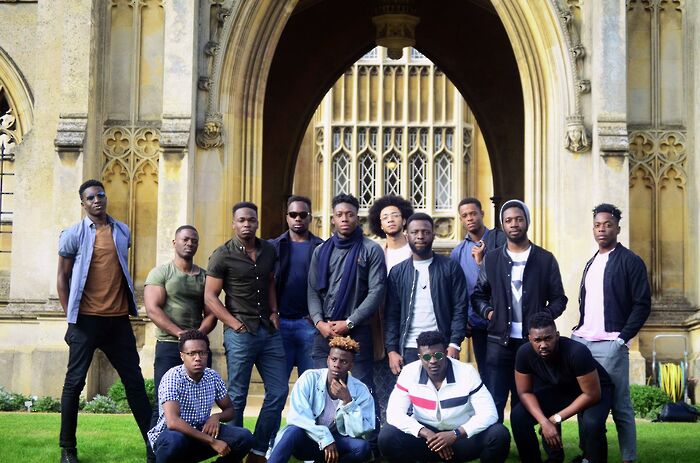Love Island and its variations embody tribalism at its most marketable
Sam Brown on the problematic primitivism and performative sexuality of the ‘couple-up or be kicked-out’ television genre
Two alpha males at peak physical form and virility sit away from the pack. With boundless confidence and an innate desire to assert sexual dominance over their competition, Kem Cetinay and Chris Hughes discuss, in detail, stratagems for their respective ‘chirpses’. “Get the carrot, into the fucking hummus,” suggests Chris, linguistically playing on the phallic connotations of carrot sticks. “Breadsticks, celery, carrot, let’s change it up,” responds Kem, clearly willing to experiment. What follows is rapid assessment of the ‘birds’ on offer. Amber, Amelia, Olivia, Danielle – the characteristics of all are quickly pinned-down and evaluated, leading to the development of a clear hierarchy of attractiveness. The animalistic end game is clear. Pull, and pull fast.
Love Island is tribal, primitive, Darwinian – and Britain fell in love with it last year. The show captures two common trends of human behaviour: the desire to regress, in this case, to a state of primal instinct; and a post-ironic drive towards genuineness. We see this in other walks of life. In sport, for instance, body is pitted against body in a primordial play-fight, a simulation of the struggle for survival. Love Island is just one of many in a television tidal wave of ‘couple-up or be kicked-out’ type shows, with ITV’s Survival of the Fittest and Bromans both based on a similar premise.
“It goes beyond appropriation to an almost comical burlesque of tribal culture”
Part of what makes these shows so watchable is their stripping back of the facades and pretences that colour modern romantic interaction. There is little attempt at subtlety, with contestants rarely wearing more than underwear. Flirting, as shown by Chris’ attempts at hummus euphemism, is also less than sophisticated. This lack of contrivance manifests itself in the forced ‘coupling up’ sessions, in which contestants pick their desired partner in front of rivals. You can consciously feel the brain cells dying at every stage, yet the crudeness of these shows in itself is not objectionable. The racial sub-text to the primitivism that they rely on and the problematic gender relations they seemingly promote are much more dangerous, however.
Survival of the Fittest clearly demonstrates this questionable exploitation of primitivism. The show is written by the same ‘brains’ who devised Love Island, who describe it as a pitting of girls against boys in the “ultimate battle of the sexes”. The trailer shows groups of scantily-clad men and women fighting on the South African savannah, while a voiceover pronounces how “under the African sky, sparks will fly”. It makes for uncomfortable watching: an all-Western, largely Caucasian gang of people, performing a pseudo-Maori war dance in ‘tribal’ costume. It goes beyond appropriation to an almost comical burlesque of tribal culture.
“Shows such as Love Island and Survival of the Fittest are notably heteronormative”
Ben Macintyre’s satirical piece on Love Island looks at the antics of Kem, Chris, and others from an anthropological perspective. Cut off from society and encouraged to cavort in the sun, Love Island is “living evidence of how isolated communities swiftly evolve unique forms of behaviour”. Primitive and pre-literate, the insular society’s language develops along procreational lines, gaining a complexity that made it almost incomprehensible to an English speaker: “Like, I really am into him, but, like, I’m just not sure if I’m, like, really into him. Like, we get on, but, like, do we really, like, get on? Know what I mean?”. While Macintyre argues the show is a timely reminder of the importance of preserving island culture, the setting in my mind becomes a backdrop to the Westerners’ burgeoning sexual relationships. The tribal is side-lined as simply an ‘appropriate’ setting for the primitive activities going on in the foreground.
Aside from their questionable use of the tribal as backdrop to the hedonistic, shows such as Love Island and Survival of the Fittest are notably heteronormative. It is made clear from the off that man must pair off with woman – bromances and sisterhoods are the only acceptable deviations from this structure. It seems a clear step in the wrong direction for such a mainstream platform such as this not to include LGBT+ representation. Within their heteronormative set-ups, these programmes regularly present predatory male sexual activity and passive female sexual gestures as the norm. One Love Island 2016 contestant, Daniel Lukakis, proudly pronounced upon the arrival of a new woman to the island: “Fresh meat! And the lions are coming at it!” Such small instances of concentrated sexism characterise the show’s attitudes to gender stereotypes, presenting a marred vision of reality to a generation of people growing up with television as a central influence on their world outlook.
Love Island and other shows like it serve a definite purpose. There is something strangely therapeutic about watching very beautiful (and yet remarkably dim) people converse. It is performative sexuality, stripped of any pretence at sophistication. Despite this crude purpose, however, their racial and gender subtexts are dangerous and misleading. Hummus puns coupled with tribal appropriation hints to everything that is wrong with Western society’s conceptions of gender dynamics and foreign cultures
 News / Clare Hall spent over £500k opposing busway 24 December 2025
News / Clare Hall spent over £500k opposing busway 24 December 2025 Comment / The ‘class’ of Cambridge24 December 2025
Comment / The ‘class’ of Cambridge24 December 2025 News / Caius mourns its tree-mendous loss23 December 2025
News / Caius mourns its tree-mendous loss23 December 2025 Comment / Yes, I’m brown – but I have more important things to say22 December 2025
Comment / Yes, I’m brown – but I have more important things to say22 December 2025 News / Girton JCR publishes open letter expressing solidarity with Palestine25 December 2025
News / Girton JCR publishes open letter expressing solidarity with Palestine25 December 2025











